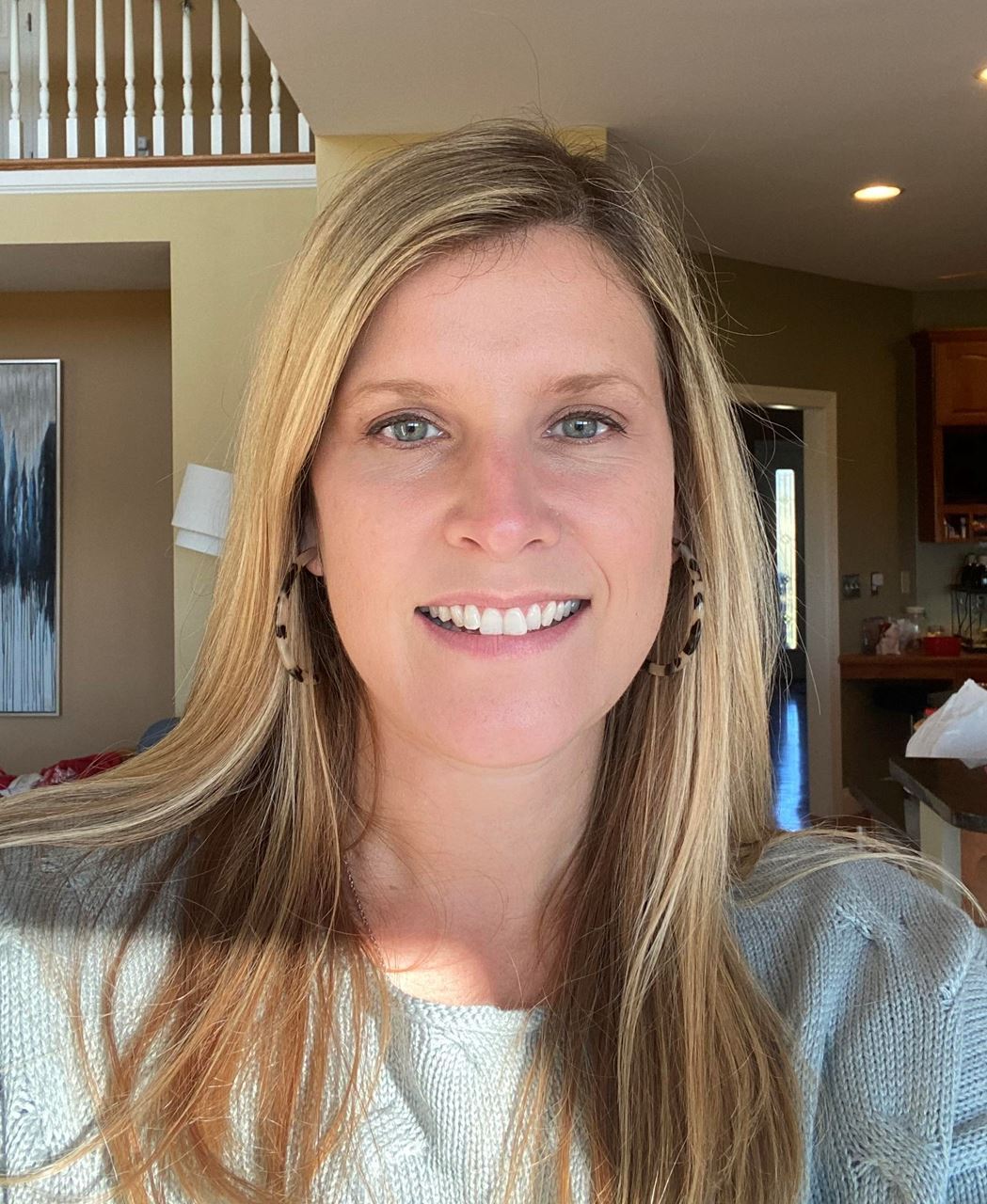MEMBER OF THE MONTH
STAY TUNED! MEMBER OF THE MONTH WILL BE BACK SOON. WANT TO NOMINATE THE NEXT MEMBER OF THE MONTH?
NOMINATE OR SELF NOMINATE
PAST MEMBERS OF THE MONTH
 RENEE WARFIELD
RENEE WARFIELD ESOL Teacher at Easton High School
Renee earned her certification in 2014, but has been working with adult learners and in tutoring roles since 2001.
WHY DID YOU BECOME AN ESOL TEACHER?
After I graduated from Salisbury University in 2002 with a degree in Spanish, I often sought out opportunities to know more about languages, and the people who speak them, to teach within communities of people learning English where I lived. Years as a high school Spanish teacher, many native Spanish-Speaking students were in my classes, who shared much about their experiences and educational histories. I also remembered being a student learning Spanish in Spain and Mexico and how isolating that can be when one seeks support and does not receive it. It all resonated in a big way. I knew many people in my community who were learning English, expressed sentiments of not feeling included in local events, or were reticent to reach out for information from community resources. A desire for total community inclusivity, along with my love for languages is why I pursued a career in ESOL.I wanted a way to foster the idea that languages connect people- They should not separate them.
WHAT OTHER JOBS OR CAREERS DID YOU HAVE BEFORE LANDING IN TESOL?
I was a Spanish teacher for eleven years prior, a program coordinator for the Dorchester County Library Descubra su Biblioteca project, a newspaper journalist for the Daily Banner and an administrative assistant in the World Languages House at Salisbury University.WHAT DO YOU LOVE ABOUT YOUR CAREER?
"It takes a village." I love that being an ESOL teacher means that your role includes everyone in a school community. Meeting families from around the world, with diverse norms and beliefs, training new teachers in how to address accommodations in their instruction, exchanging data with administrators, collaborating with community members providing services to families, enrolling new students with guidance counselors- all of it requires collaboration between many to bolster the academic success of the student. We truly must teach the whole child.
WHO OR WHAT INSPIRES YOU?
I would be in err to not say my students! Many of my students and/or their families travel around the world for safety, opportunity, family unification, health circumstances. The fortitude one has to demonstrate in that transitional process and in the process of acquiring skills for this new season of life are pretty aw-inducing. I am lucky to be a witness to it.
WHAT IS YOUR GREATEST ACCOMPLISHMENT (SO FAR?)
My greatest accomplishment, was not mine alone. It was cultivated by a school family, who advocated for change and created an atmosphere of support. In doing so, our English Language Learning students reinvested in school. Our school experienced an increase in graduation rate and plummeting drop out rates amongst those students. For some specific efforts, I was nominated by colleagues and supported by administrators for consideration for Teacher of the Year in Talbot County. Others were also responsible for this change, but several teachers believed in my efforts enough to make it known. That support and belief in my work with students, propelled me to not only win in 2019, but to be a Maryland state finalist. On days when working long hours, staying late to research student trends, tutoring and outreach efforts, giving up the planning period or having tense conversations to advocate for students, I remind myself that it is vital to support students but for colleagues as a school family too. Wonderful things come of it.
WHAT GOALS DO YOU HAVE FOR THE FUTURE?
I plan to complete my administrator certification this summer and remain interested in leadership opportunities where social justice, cultural competency and expected equitable practices are prioritized. I would love to provide student advocacy at a level where institutional decisions are made.
WHAT IS YOUR FAVORITE PART ABOUT TEACHING?
My favorite part of teaching is learning from my students. In getting to know my students, their stories, the nuances of their experientially-shaped perspectives, I learn so much about life and this big old world we live in.
TRAINING TEACHERS IS LIKE...
Training teachers is like driving a car with an outdated GPS, because you have a plan to get where you need to go, but you must be responsive when needed.
THREE THINGS I ALWAYS HAVE IN MY DESK OR BAG ARE...
Highlighters of various colors. Pre-Covid, these were quick, visual tools for helping students make connections. These days, they're not in my bag, but the toolbar. Very sharp pencils. There is just something about a tiny tip of graphite sliding across a sheet of paper that makes writing satisfying. Call me "old school". A picture of my family. I firmly believe happy faces on a desk, put happy faces behind one.
MORE PAST MEMBERS OF THE MONTH
Rachel Riggs, Tabitha Kidwell, Mary Burch Harmon, Owen Silverman Andrews, Diana Siemer, Hillary Lasch, Claudia Easton, Robert Freeman
.png)